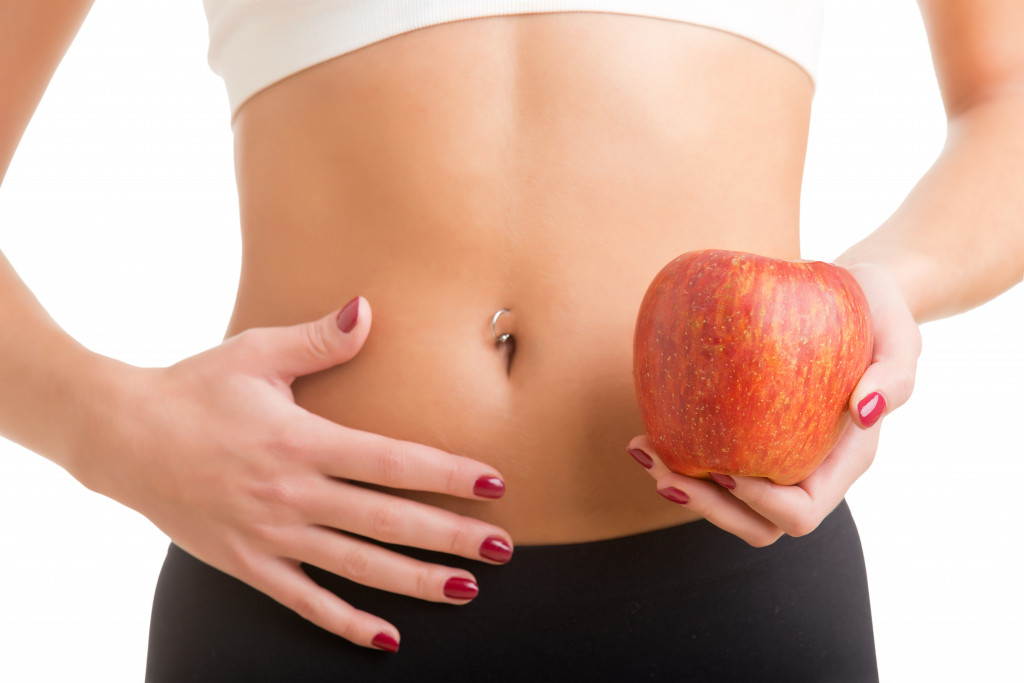Your body changes a lot during pregnancy. Many women return to normal much quicker than others. On the contrary few women try a whole gamut of ways to look like their older selves. After reading this, you will get a few thoughts inside your brain when you are wheeled into the operation theater. One of the thoughts will be about how you will shed those extra pounds.
After childbirth, and a few days after that, whenever you look into the mirror, what is seen is a Kangaroo pouch hanging. Well, you are not alone. Millions of women have the same feeling after childbirth. You should embrace the new body inside out, apart from your newfound responsibilities. If you are planning to have a child or are pregnant already, you should read this so that no nasty or shocking surprises later on.

Stomach Pooch
Yes, that’s that Kangaroo pooch that we were talking about earlier. Your belly bears the major onslaught. It starts when you are in your second trimester, and it continues, even after you give birth. Many factors go behind this: your genes, your previous weight, body structure before pregnancy, and age matter. There will be stretch marks, excess flab, and a protruding belly button. It takes up to 2 months or more for your uterus to go back to normal.
It will substantially reduce the size of your belly, but you will still be left with a considerable amount of loose abdominal tissues. If you happen to engage your core muscles a lot during pregnancy through exercise, there are high chances that you will recover fast. If you start after delivery, you can still reduce a considerable amount of flab. Get ready for hard work, though.
Lower Body Pain
Meanwhile, your body takes a lot of pressure on the rear, as the front abdominal muscles are stretched and considerably loose. Moreover, the pain at the rear side may last for six months and even a decade. A lot depends on your lifestyle and fitness levels. Almost half the women giving birth have this issue. So, it is nothing new. If you had a cesarean delivery, the chances of developing this problem are high. You can attribute this to the epidural pushed inside the spinal fluid a few minutes before surgery.
Other causes may be Diastasis Recti or gallstones. In Diastasis Recti, your internal organs push against the muscle mass or may even protrude through a puncture. There is nothing to be scared of, though. It may or may not happen. However, back pain is common. There are various ways you can alleviate the pain. Exercise and sleeping with a knee pillow help. If you are still uncomfortable, you should try a posture corrector or back brace. It will provide ample support to your abdominal muscles and lower back.
Urinary Incontinence
If you studied biology in high school, you could know that the growing uterus puts a lot of pressure on the urinary bladder during pregnancy. Your pelvic floor muscles also get weaker. You could still feel the after-effects after you are done with the delivery and back home. Whenever you cough, sneeze or lift some heavy objects, you will feel urine leaking out. You should not freak out one bit. It is pretty natural as well.
Try out the Kegel exercise if you think you need a little help. These pelvic floor strengthening exercises help strengthen your pelvic core muscles. You will automatically control your bladder in a few months. Start doing it after birth and feel the situation improving slowly.
Postpartum Constipation
This is very common in the first week after your delivery. It mainly occurs due to the drugs as painkillers injected into your body before and after delivery. Having a cesarean section also puts a stop on your bowels or at least slows them down. It may happen that you are putting less pressure on the anus because of stitches in the lower abdomen or vagina. More often than not, it is a psychological issue wherein your body knows what it has been through.
Changes in sleep patterns in the initial weeks can also hamper your bowel movements. Additionally, bringing up a small baby is a huge task. You may still be reeling under it. It will go away in a few days, as you get habituated with your new routine. There are a lot of ways to ease your bowels. Try hydrating yourself with water and juices every few hours. And add more fiber to your meals. Laxative suggested by your doctor may even help.
There are just a few changes that your body goes through after childbirth. There are plenty more, like changes in breast size and shape, the appearance of varicose veins, and swollen feet, to name a few. These are common and go away with time. You should lead an active life to solve all these issues quickly.